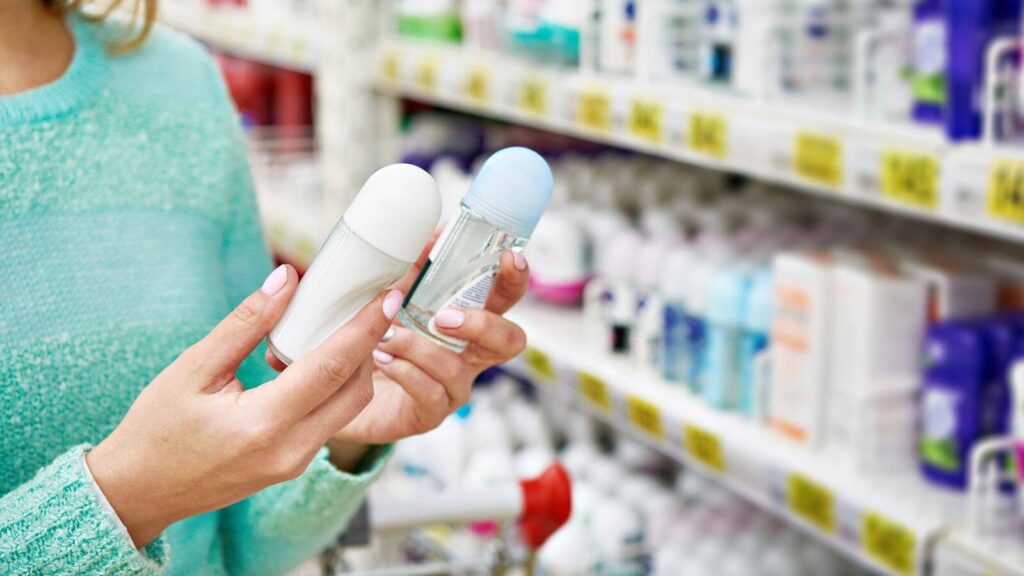What TikTok and Trendy Brands Aren’t Telling You About That “All-Over” Freshness
Introduction
The personal care industry has always chased the scent of success—literally. From armpit sticks to dry sprays to intimate wipes, body odor has long been exploited for the sake of profits. But recently, a new product category has emerged: full body deodorants. Marketed as a solution for odor on the chest, back, under breasts, groin, feet, and even thighs, these products promise “total body freshness.”
What they don’t promise—or even mention—is the effect these products may have on your skin microbiome, your body’s first line of defense against environmental threats and a key regulator of skin health.
Let’s break down why full body deodorants may be a short-sighted solution with long-term skin consequences.
1. The Skin Microbiome Is Not the Enemy
Every inch of your skin is home to a carefully balanced ecosystem of microbes—bacteria, fungi, and viruses—that keep your skin healthy. This microbiome varies depending on the site. Think of your body as an entire ecosystem containing:
- Oily areas like the face and back host different microbes
- Moist areas like underarms and groin, which are different again
- Dry areas like the forearms and shins
This diversity isn’t random…it’s essential! Each region’s microbiome helps regulate immune responses, protect against pathogens, and support skin renewal. Disrupting these populations with antimicrobial or occlusive deodorants across the entire body can throw this delicate balance into chaos.
2. Most Deodorants Weren’t Designed for All-Over Use
Traditional deodorants—especially antiperspirants—contain ingredients like:
- Aluminum salts to block sweat glands
- Alcohols and fragrances that can irritate sensitive skin
- Antimicrobial agents that indiscriminately kill bacteria (good and bad)
When applied to areas not designed for such harsh treatment (like inner thighs, stomach, chest, or intimate areas), these products may cause irritation, redness, dermatitis, or worse: an overgrowth of opportunistic pathogens due to a disturbed microbiome.
3. Killing Bacteria = Killing Balance
The root of odor is often blamed solely on bacteria. While it’s true that certain strains (like Corynebacterium in the underarms) metabolize sweat into smelly compounds, it doesn’t mean bacteria = bad. In fact, most strains are beneficial, keeping more harmful microbes in check.
Full body deodorants may disrupt this balance by:
- Wiping out commensal (friendly) bacteria
- Encouraging resistant or harmful strains to take over
- Leaving the skin vulnerable to irritation, infection, or inflammation
The fact is a product meant to keep you “clean” might just be making your skin more vulnerable.

4. Your Skin Isn’t Supposed to Smell Like Coconut Milk and Vanilla 24/7
We’ve been conditioned to think of any natural human scent as “bad” and shameful—but this is a cultural construct, not a medical one. A healthy body has a smell, and that smell isn’t toxic or embarrassing. The obsession with “all-day freshness” often masks a deeper issue: we’re over-sanitizing our bodies at the expense of our skin health.
5. What to Do Instead
If you’re worried about body odor outside the underarms, consider microbiome-friendly alternatives:
- Targeted cleansing with pH-balanced, sulfate-free body washes
- Natural fabrics to reduce sweat retention
- Postbiotic skincare products that nourish good bacteria
- Prebiotic powders or serums for moisture-prone areas (feet, groin, under-breasts)
- Careful use of traditional deodorant, only in areas where it’s truly needed
Conclusion: Don’t Fall for the Funk-Fighting Hype
Full body deodorants are the latest example of a beauty industry solution that ignores biological wisdom. While they may offer temporary scent suppression, they come at the cost of a healthy, functional skin barrier—and the long-term consequences may include irritation, infections, and chronic microbiome imbalance.
Instead of masking your natural scent, support your skin in doing what it’s designed to do: protect, renew, and balance itself—naturally.
